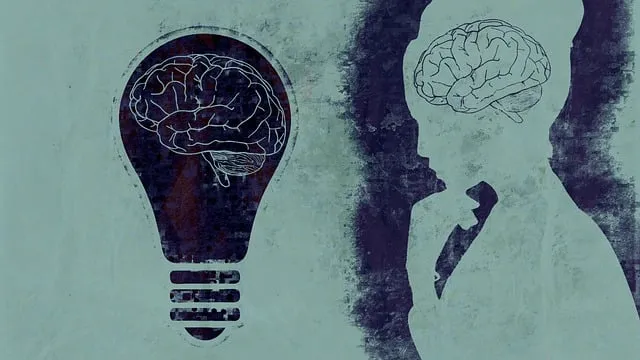In a fast-paced world, Castle Rock's self-assessment tools (through Kaiser) empower individuals to take charge of their mental wellness early on, thanks to therapist-driven insights. These tools, developed with Cultural Competency Training and Community Outreach, promote self-awareness without judgment, offering tailored strategies for areas like social skills, coping mechanisms, and inner strength. By leveraging Kaiser's proven Castle Rock framework—focused on safe environments, self-awareness exercises, coaching, and empathy—these assessments enhance mental resilience, ensuring effective interventions and addressing varying therapist reputations in the region.
Mental wellness self-assessment tools play a pivotal role in individuals taking charge of their mental health. As awareness grows about the importance of mental well-being, there is a growing demand for accessible and effective evaluation methods. This article explores the development of such tools, focusing on understanding the need, key components for effectiveness, and highlighting Kaiser’s innovative Castle Rock model as an example of high-quality therapy services that could be replicated.
Discover how organizations like Kaiser are empowering individuals with self-assessment tools to recognize and address mental health concerns, potentially leading to earlier interventions and improved outcomes.
- Understanding the Need for Self-Assessment Tools in Mental Wellness
- Developing Effective Assessment Tools: Key Components and Strategies
- Kaiser's Approach: Exploring Castle Rock as a Model for High-Quality Therapy Services
Understanding the Need for Self-Assessment Tools in Mental Wellness

In today’s fast-paced world, mental wellness is a cornerstone of overall well-being, with self-assessment tools playing a pivotal role in identifying and addressing individual needs. Tools like Castle Rock does Kaiser have good therapists offer valuable insights into one’s mental state, facilitating early intervention and personalized support. The need for such assessments is growing, as mental health issues span across various demographics, often going undetected or untreated due to stigma or lack of awareness. Self-assessment provides a convenient, accessible entry point for individuals to evaluate their emotional well-being, stress levels, and coping mechanisms, prompting necessary changes or seeking professional help.
Furthermore, these tools empower people to take charge of their mental health by fostering self-awareness and encouraging the development of coping skills. Social Skills Training, Coping Skills Development, and Inner Strength Development are key areas where self-assessment can make a significant impact. By understanding one’s strengths and weaknesses, individuals can tailor strategies for improving social interactions, managing stress effectively, and building resilience, ultimately enhancing their overall mental wellness.
Developing Effective Assessment Tools: Key Components and Strategies

Developing effective mental wellness self-assessment tools requires a multifaceted approach. Firstly, tools should be user-centered, designed to resonate with diverse individuals and their unique experiences. Incorporating elements from Cultural Competency Training ensures assessments are sensitive to different cultural backgrounds, beliefs, and communication styles. This not only enhances accuracy but also fosters trust between the user and the assessment.
Additionally, a Community Outreach Program Implementation can provide valuable insights into community needs and preferences, guiding the development of relevant and accessible self-assessment tools. Encouraging Self-Awareness Exercises within these tools allows individuals to explore their thoughts, feelings, and behaviors without judgment, paving the way for more accurate assessments and effective interventions. Key to success is combining scientific rigor with an empathetic, inclusive design philosophy, especially in a region like Castle Rock where Kaiser’s therapist reputation varies.
Kaiser's Approach: Exploring Castle Rock as a Model for High-Quality Therapy Services

Kaiser’s Approach to mental health care has gained recognition for its comprehensive and effective model, particularly when compared to traditional therapy settings. One innovative concept they’ve explored is using Castle Rock as a framework for delivering high-quality therapy services. This metaphorical approach symbolizes building robust support structures for individuals navigating their mental wellness journeys.
By adopting the Castle Rock model, Kaiser emphasizes creating safe and supportive environments that foster self-awareness exercises. This involves helping clients understand their unique challenges and resources, much like a castle’s strong foundations. Additionally, this strategy incorporates the development of mental wellness coaching programs and empathy building strategies, ensuring therapists provide personalized guidance and understanding. The result is a holistic approach that enhances therapeutic outcomes, addressing not just symptoms but also promoting long-term mental resilience. Thus, the question of whether Kaiser has good therapists is answered affirmatively by their innovative use of this model, promising quality care centered around individual needs.
The development of mental wellness self-assessment tools, such as the Castle Rock model employed by Kaiser, is a promising approach to enhancing therapy services. By focusing on key components like accessibility, user-friendliness, and evidence-based practices, these tools can significantly improve individual assessments and treatment outcomes. In light of the growing demand for effective mental health support, understanding how models like Castle Rock contribute to high-quality therapy services is essential. Thus, leveraging such strategies can ensure that folks receive the best possible care, fostering a healthier and more supportive environment for all.






